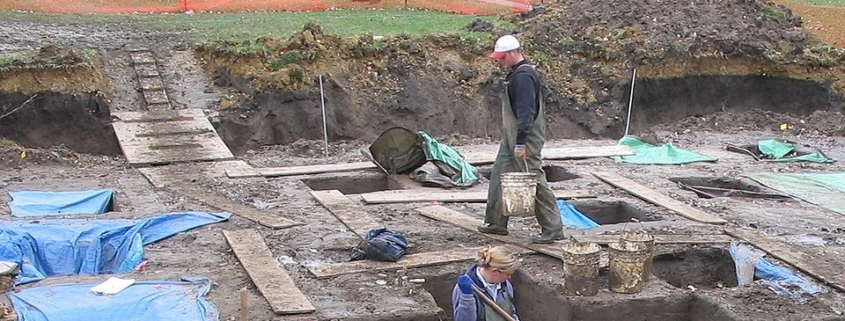16-18 May 2018 – Geoarchaeology
VU Amsterdam
In this course a toolbox is presented to study geoarchaeological research problems and which methods are used from Northwest European and North Atlantic case study areas.
This course gives theoretical and practical frameworks for interpreting soils, sediments and landscapes as records of the past and provides theoretical training in field and laboratory methods that identify, quantify and evaluate early human activities and environmental imprints. These understandings and skills contribute new landscape histories for Northwest European and North Atlantic regions, while techniques can also be applied elsewhere. This work offers important and challenging perspectives on how interpretations of soils and sediments contribute to how people lived with and adapted to environmental change and has resonance with contemporary debates on sustainability, resilience and heritage management.
Developing a toolbox for geoarchaeology in archaeological field projects.
Day 1: Maps and stratigraphy (lacquer peels) natural soils of NW Europe and the North Atlantic (1 day).
Day 2: Field program: Pleistocene, Holocene and ‘Anthropocene’ soils and sediments. Coring excursion and fieldwork, preparing for group presentation.
Day 3: Morning: Lab exercises: thin sections micromorphology NW European and North Atlantic anthropogenic soils and sediments.
Day 3: Afternoon: Group presentations of sections, maps and micromorphology: synthesis in time and space in section.
Testing: Presentation 25%) Research report (3000 words, excl. figures, images, photos and references) (75%).
You can register for this course by sending an e-mail to Archon’s coordinator, Barbara.


